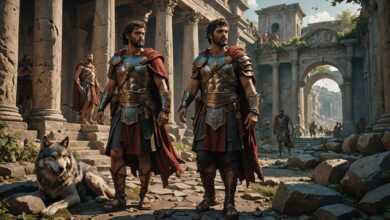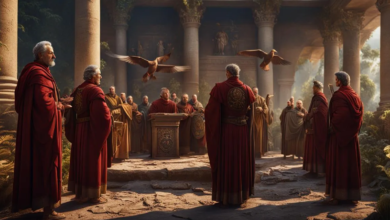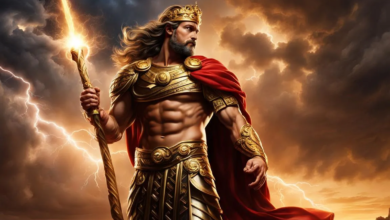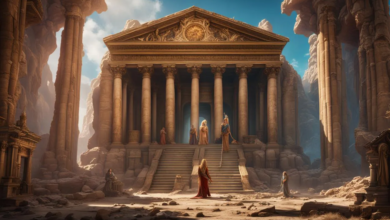In the pantheon of Roman gods and goddesses, Venus shines brightly as the embodiment of love, beauty, sensuality, and fertility. Her origins, myths, and worship reflect the Roman people’s values and beliefs and their deep connection to the natural and divine worlds. Venus’s influence stretches across realms, from the budding of spring flowers to the deepest passions of the human heart, embodying the vital forces that drive life and civilization.
Venus’s roots can be traced back to ancient Greek mythology, where she was known as Aphrodite. However, as the Romans embraced and adapted Greek mythology, Venus acquired distinct characteristics and roles within Roman culture. Unlike her Greek counterpart, who was often depicted as capricious and wilful, Venus represented a more grounded and multifaceted aspect of love and beauty, intertwining with Roman traditions, festivals, and the foundation of Rome itself.
One of the most enduring tales of Venus’s influence involves her role in the legendary birth of Rome. Venus was the mother of Aeneas, the Trojan hero who survived the Greek destruction of Troy and, according to Roman mythology, sailed to Italy. His descendants, Romulus and Remus, would go on to found Rome. This divine lineage positioned Venus as a goddess of personal desire and fertility and as a pivotal figure in Rome’s national identity and divine protectorate.
Venus’s worship was widespread across the Roman Empire, reflecting her importance in everyday life and the afterlife. The goddess was celebrated in numerous festivals, such as the Veneralia, a day of cleansing and renewal for women and the state, and the Vestalia, where her role as a protector of Rome was honoured. Temples and altars dedicated to Venus dotted the landscape, serving as centres for her worship and celebrating her divine principles.
The mythology surrounding Venus is rich with tales of love, intrigue, and divine interplay. Perhaps the most famous of these is her affair with Mars, the god of war. Their union symbolized the irresistible pull of love, capable of taming even the most tumultuous spirits. This relationship highlighted Venus’s power to bridge divides, creating harmony from discord through love and attraction.
Venus’s role as a cultural and religious figure in Roman society was complex and multifaceted. She was invoked by lovers seeking mutual affection, soldiers hoping for victory, and couples desiring fertility. This wide range of influence underscored her status as a universal force governing the natural world’s cyclical rhythms and the human heart’s unpredictable passions.
Artistically, Venus was depicted in various forms, from statues and paintings to coins and jewellery, showcasing her beauty and grace. These artistic representations often emphasized her attributes of fertility and love, such as the myrtle wreath, doves, and the apple. Venus continued to inspire and captivate through art, a testament to her enduring appeal and significance.
In literature, Venus was a favourite subject among Roman poets, who explored her dual nature as a source of pure love and earthly desire. Poets like Virgil in his “Aeneid” and Ovid in his “Metamorphoses” portrayed Venus as a critical player in the affairs of gods and mortals, weaving her into the fabric of their epic tales and romantic exploits. Through these literary works, Venus was celebrated for her divine beauty and role in the complex interplay of fate, love, and the human condition.
The legacy of Venus in Roman culture and beyond is a testament to her significance as a deity who transcended the ordinary, touching every aspect of life with her divine presence. Her myths and worship offer insight into the Roman world’s values, revealing a society deeply connected to the forces of nature, love, and beauty.
Beyond the confines of Roman mythology, Venus’s influence persists in modern culture, symbolizing the universal themes of love and beauty that resonate across time and space. From art and literature to astronomy, where the planet Venus bears her name, her legacy continues to inspire and enchant, a reminder of the enduring power of the divine feminine. In conclusion, Venus stands as a beacon of love, beauty, and unity in Roman mythology, her stories and worship reflecting the multifaceted nature of human experience. Through her, the Romans expressed their understanding of the world, where the divine could be found in the beauty of the earth, the warmth of love, and the fertility that ensures life’s continuation. Venus’s enduring appeal lies in her ability to encapsulate these universal principles, making her as relevant today as she was in ancient Rome. Her legacy is a testament to the timeless power of mythology to explore and explain the depths of human experience, inviting us to see the world—and ourselves—through the lens of the divine.





